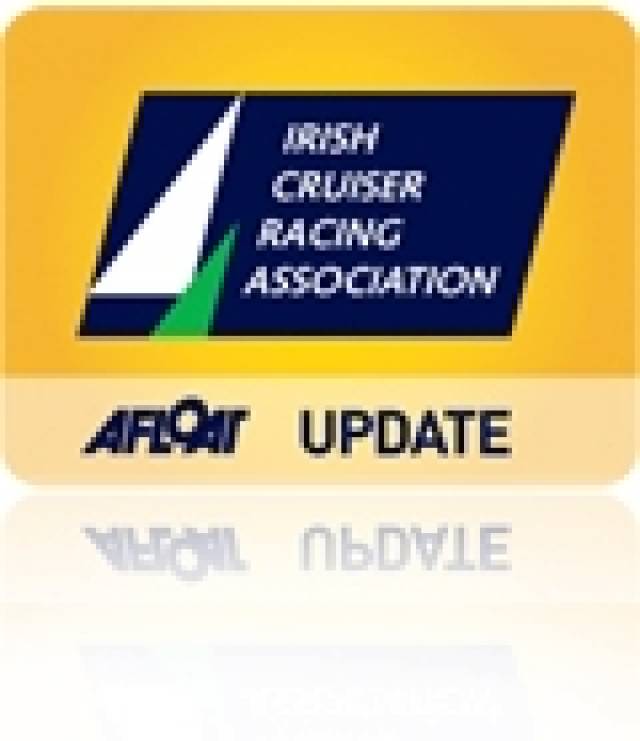The Irish Cruiser Racing Associtation (ICRA) has been given a ringing endorsement of the scoring system deployed at the cruiser national championships in Tralee by the Royal Ocean Racing Club (RORC) in London who see the Irish dual scoring system 'providing balance and parity'.
Even though Kerry was judged as a remote venue from the major cruiser-racer centres of Dublin and Cork it still managed to pull bigger numbers than for example those who contest the British IRC nationals. A fact Water Rat refered to last week in a piece on Ireland's event sustainability.
"In Ireland, all races are dual scored under both IRC and ECHO, the Irish national performance handicap system. ECHO is then 'managed' to ensure that the keen racers don't win under both systems. It works - Ireland has the largest number of boats racing per capita, per mile of coastline, or any other way you measure it. " said the RORC's Mike Urwin.
Of course it is something Irish cruiser racer followers have known for sometime. WM Nixon refered to it recently in his Afloat.ie blog (Echoes of the Republic up North) in April.
It is no secret that RORC's Rating Office, the technical arm of the Royal Ocean Racing Club and gatekeeper for the IRC rating rule in the UK, supports the use of local and national performance handicaps. Far from being in competition with IRC, properly administered handicap systems complement it by bringing new people into the sport and igniting their competitive spirit.
The Rating Office is optimistic that owners move into IRC when they feel they have 'outgrown' performance handicap racing, and recognises that it provides an ideal introduction to the sport. However, if your club usually splits boats between local handicap and IRC classes, this can mean unsatisfactory racing in small, fragmented fleets with large variations in performance.
One option for overcoming this is what Mike Urwin, RORC Technical Director, refers to as 'the Irish solution' and the joint use of ECHO and IRC.
Urwin contends that this allows those new to racing to compete in a larger, mixed fleet with a handicap that is adjusted to reflect their performance. As they become more experienced and their handicap increases, those sailors become less interested in the handicap result and more interested in getting an IRC result. It encourages newcomers, (especially if they beat the local favourite!) and produces better racing, as Urwin explains:
"Instead of splitting the fleet into 'club' and 'IRC', everybody races together with class splits based on speed if there are enough entries. Everyone gets a result in the handicap class, and those with an IRC certificate also get a result in the IRC class. Both classes have the same status on the noticeboard and the same prizes."
For performance handicaps and dual scoring to work well, the handicap system must be administered progressively and updated on a weekly, race by race basis. It does not work if a handicap is set at the beginning of the season but never changed!
For handicap racing and dual scoring in the UK, the RORC Rating Office recommends the new RYA National Handicap for Cruisers (NHC) alongside IRC. The Rating Office is very happy to advise clubs on dual scoring.
































































